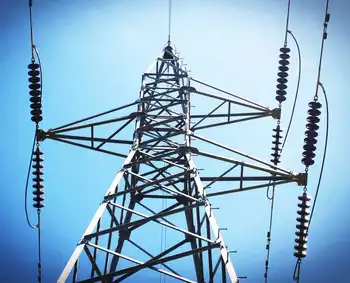Utility customers to benefit from tax law changes
By Business Wire
Protective Relay Training - Basic
Our customized live online or in‑person group training can be delivered to your staff at your location.

- Live Online
- 12 hours Instructor-led
- Group Training Available
“This is a story of how, by working together, we can make positive steps on behalf of Washingtonians and the American people for today and tomorrow,” said McDermott. “In joining with Puget Sound Energy, I’m proud to say we’ve helped make the future of renewable energy brighter and more cost effective in our own backyard and across the nation.”
PSE, the Pacific NorthwestÂ’s largest utility producer of renewable energy, estimates that this regulatory change will save its customers several hundred million dollars in the next decade.
Kimberly Harris, PSE executive vice president and chief resource officer, explained that without the tax change PSEÂ’s future wind projects would not qualify for the tax credit, making utility produced renewable generation more expensive for customers.
Aware that current IRS tax regulations were inhibiting wind, solar and other renewable resource development for utilities and their customers, PSE worked with McDermott, a senior member of the U.S. House of Representatives Ways and Means Committee, which has jurisdiction over the IRS and the internal revenue code, to convince the IRS to correctly reinterpret tax law. The corrected interpretation now removes impediments to new projects for utilities by eliminating the utility exemption in the wind production tax credit provision.
“The bottom line is that customers will save money and Puget Sound Energy and other utilities will be encouraged to deploy new and renewable energy resources,” McDermott said.
Prior to the revision, federal regulations (interpreting section 45 of the Internal Revenue Code) restricted federal tax credits for renewable energy production in a way that barred their use by utilities that were partnering with investors to generate renewable energy. Now, with a revised interpretation of the tax code, utilities that partner with other investors and sell that energy to their customers will be able to qualify for the tax credit.
“With Congressman McDermott’s assistance, we were able to work with the US Treasury and the IRS to take a positive step for the environment and for our customers in Washington and others all across the country,” said Harris. “By treating both utilities and independent power producers equally, this interpretation of the tax code will make it possible for utilities to own and operate more renewable energy sources.
“This action by the Treasury is the right step for the consumer and for meeting the challenge of climate change,” Harris added. “Treating all producers of clean, renewable energy the same only makes sense for building a sustainable future.”
PSE owns and operates the Wild Horse Wind and Solar Facility in Kittitas County and the Hopkins Ridge Wind Facility in Columbia County. Combined, the two sites in Washington State have the capacity to generate up to 380 megawatts of electricity, or the equivalent of that used by about 100,000 homes. In April, PSE announced a proposed expansion of Wild Horse, increasing the facility from 127 turbines to approximately 150. The utility is completing construction on four additional turbines at Hopkins Ridge. PSE is also studying further renewable energy opportunities throughout the state and region.











